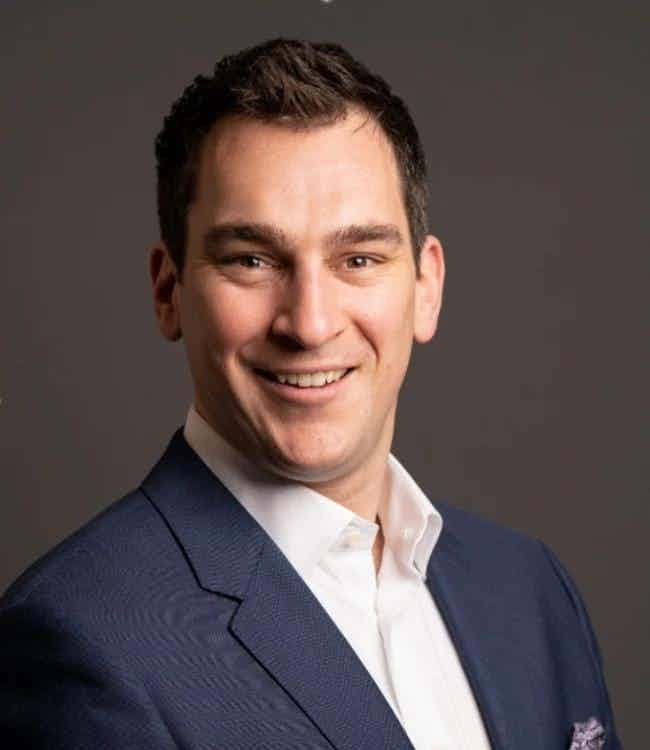Can Automation Help Me to Achieve My Sustainability Goals?
Webinar Date/Time: Fri, Oct 27, 2023 11:00 AM EDT
Find out how automation and integration of sample preparation and analysis can help you achieve higher sample throughput, improve sensitivity and reproducibility, solve complex sample preparation problems, and reduce your environmental impact.

Register Free:
https://www.chromatographyonline.com/lcgc_w/accessing-suitability
Event Overview.
As an analytical chemist, you are faced with a myriad of challenges including the need for increased throughput, dealing with increasingly complex samples, meeting ever more stringent analytical performance requirements, and improving the sustainability of your analyses. Automation and integration of your sample preparation and analysis workflows can achieve all these goals, but making the transition from manual sample preparation and analysis to automated and scaled down approaches can be daunting. Invest some time in learning how automation and integration of sample preparation and analysis can help you achieve higher sample throughput, improve sensitivity and reproducibility, solve complex sample preparation problems, and reduce environmental impact.
Key Learning Objectives:
- Understand which types of analysis can be automated.
- Reduce the fear factors for adopting automation into your workflow.
- Learn the vast number of automated sample preparation and instrumental analysis introduction systems available to you.
- Learn how automation can help achieve higher sample throughput, improve sensitivity, and reproducibility.
Who Should Attend:
- Anyone who feels that automation ‘is not for me’.
- Analytical chemists who believe that automation is a threat to their livelihood.
- Anyone who is open minded to realizing the benefits of automation.
- Those who wish to optimize the accuracy and reproducibility of their analysis.
Anyone who is bored with routine sample preparation.
Speakers:
Jonathon Dunscombe
Senior Applications Chemist
Element Lab Solutions (Cambridge)
Jonathon Dunscombe is a senior applications chemist at Element (formerly Anatune Ltd.). Based in Cambridge, he has worked for the last 8 years on developing automated sample preparation solutions for a wide range of analyses, with a particular focus on environmental and water industries and more recently, extractables and leachables in the life-sciences. Prior to joining Anatune, Jon was employed by the Severn Trent Water, Bridgend, as an analyst working across a range of organic and inorganic parameters eventually becoming the Team leader for Inorganic analysis. Mark holds a degree in chemistry from Cardiff University.
Tony Taylor
Chief Scientific Officer, Element Life Sciences EMEAA
Element Materials Technology
Tony Taylor is the Chief Scientific Officer of Element Life Sciences EMEAA. He has worked in the pharmaceutical, polymer, contract analysis, and consulting industries for more than 35 years. He is an experienced chromatographer who isn’t afraid to admit that every day is a school day in the lab. He is a founder of CHROMacademy, the website where chromatographers to go learn. His passion for automation in the analytical laboratory started in 1995 when he developed his first fully automated online Solid Phase Extraction–Programmed Thermal Vaporising–GC_MS system. He has taught thousands of chromatographers globally and his natural enthusiasm for analytical science makes him a very popular speaker on webcasts, podcasts, and webinars.
Register Free: https://www.chromatographyonline.com/lcgc_w/accessing-suitability
Advances in Non-Targeted Analysis for PFAS in Environmental Matrices
March 27th 2025David Megson from Manchester Metropolitan University in Manchester, UK, spoke to LCGC International about the latest developments in non-targeted analysis (NTA) of per- and polyfluoroalkyl substances (PFAS) in environmental matrices based on a recent systematic review paper he has collaboratively published (1).
Study Explores Thin-Film Extraction of Biogenic Amines via HPLC-MS/MS
March 27th 2025Scientists from Tabriz University and the University of Tabriz explored cellulose acetate-UiO-66-COOH as an affordable coating sorbent for thin film extraction of biogenic amines from cheese and alcohol-free beverages using HPLC-MS/MS.






